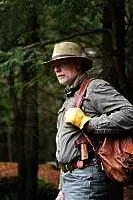Dave Rishar
Silver Member
Based on Kitsap (and only Kitsap), I'd guess that the problem here is that the information is "a mile wide and a foot deep." As I mentioned earlier, it's a forgivable sin, given the scope of the work. It's also thirty years old, and while I absolutely will not hold that against him, it may get people into trouble. A few of the mistakes have me concerned, but hey, mistakes happen.
My advice is to take a look at Mr. Terry's material if it's easily available and to take notes, but not to consider it to be any more than a start for actual research. I'd go further than that and say that one would be better off sourcing some local history books. In my case, they were far more detailed (and correct!) than what Mr. Terry wrote, despite being older. It's basically impossible for one guy to write a comprehensive guide for the entire country, but it's very possible for a bunch of old-timers in the sixties and seventies to cover a county that was settled for the most part by their grandparents and great-grandparents, as was done here. I'd be willing to bet that his material for areas with more history is better.
If anyone from Kitsap is reading this, I just gave you a metric crap-ton of free research and saved you $10 on Amazon. You're welcome. When you hit that big score, remember me...or don't. It was free after all and I'm in it for the history, not the money. (But I like that too.) It's worth everything that you paid for it, and more than some things that cost more.
I'll save the tangential stories for another thread.
EDIT: Why did you doubt me? My attendance is spotty and I've done my share of trolling and digging trash, but jeez, I at least take the research seriously! Is my past that checkered here?
My advice is to take a look at Mr. Terry's material if it's easily available and to take notes, but not to consider it to be any more than a start for actual research. I'd go further than that and say that one would be better off sourcing some local history books. In my case, they were far more detailed (and correct!) than what Mr. Terry wrote, despite being older. It's basically impossible for one guy to write a comprehensive guide for the entire country, but it's very possible for a bunch of old-timers in the sixties and seventies to cover a county that was settled for the most part by their grandparents and great-grandparents, as was done here. I'd be willing to bet that his material for areas with more history is better.
If anyone from Kitsap is reading this, I just gave you a metric crap-ton of free research and saved you $10 on Amazon. You're welcome. When you hit that big score, remember me...or don't. It was free after all and I'm in it for the history, not the money. (But I like that too.) It's worth everything that you paid for it, and more than some things that cost more.
I'll save the tangential stories for another thread.
EDIT: Why did you doubt me? My attendance is spotty and I've done my share of trolling and digging trash, but jeez, I at least take the research seriously! Is my past that checkered here?

Last edited:





